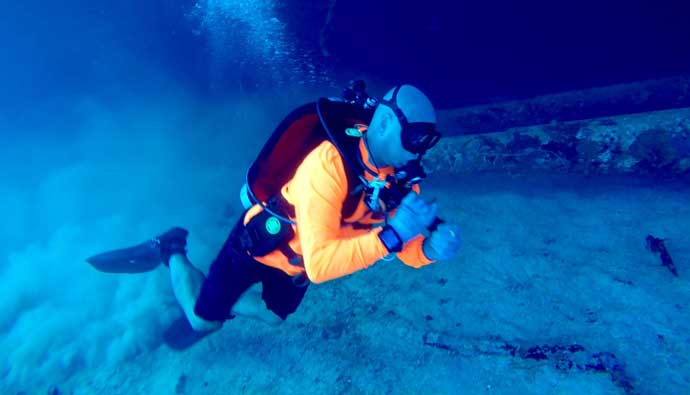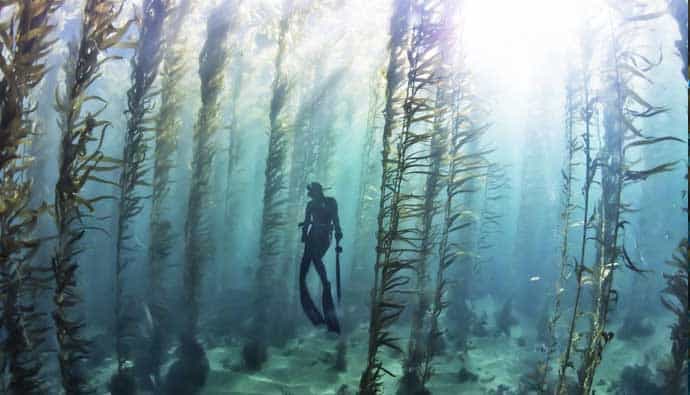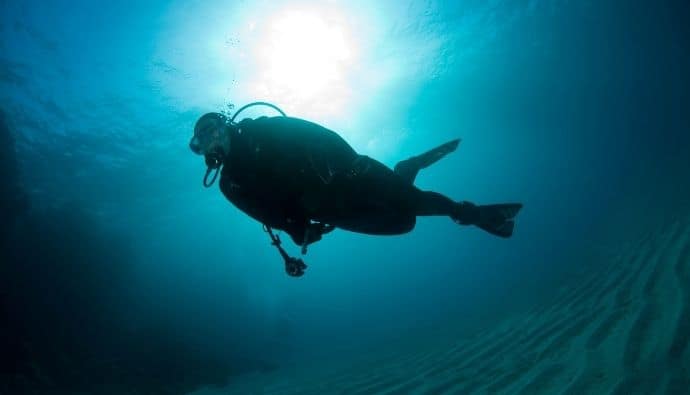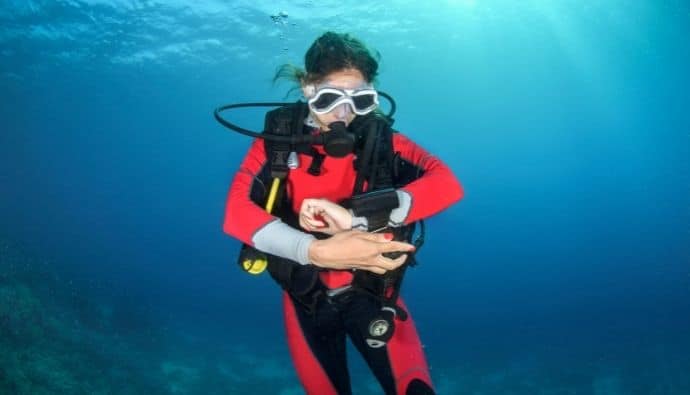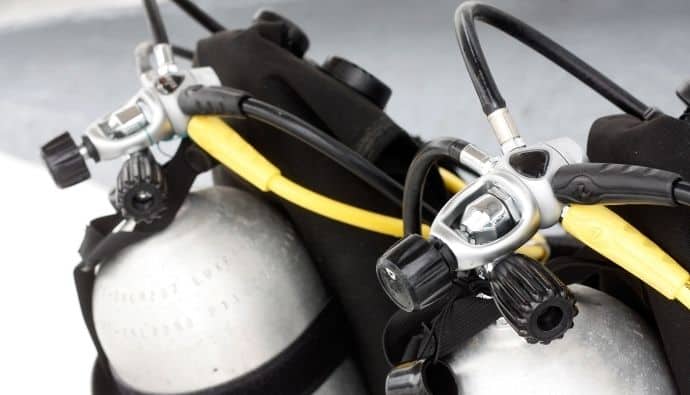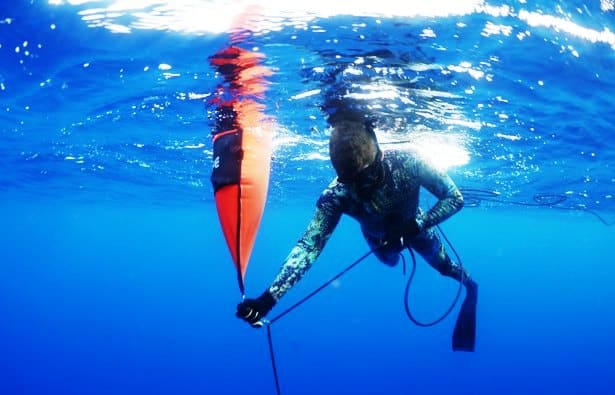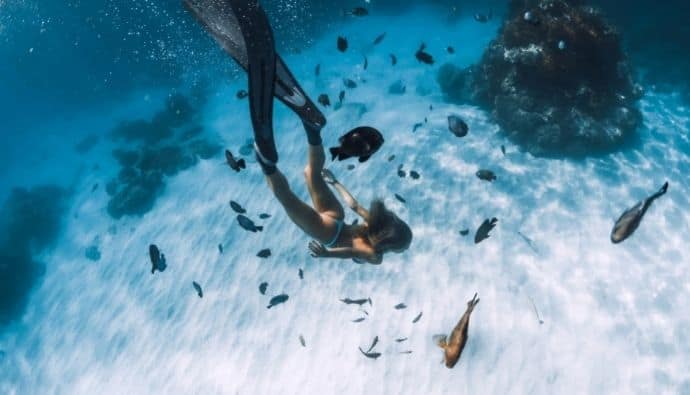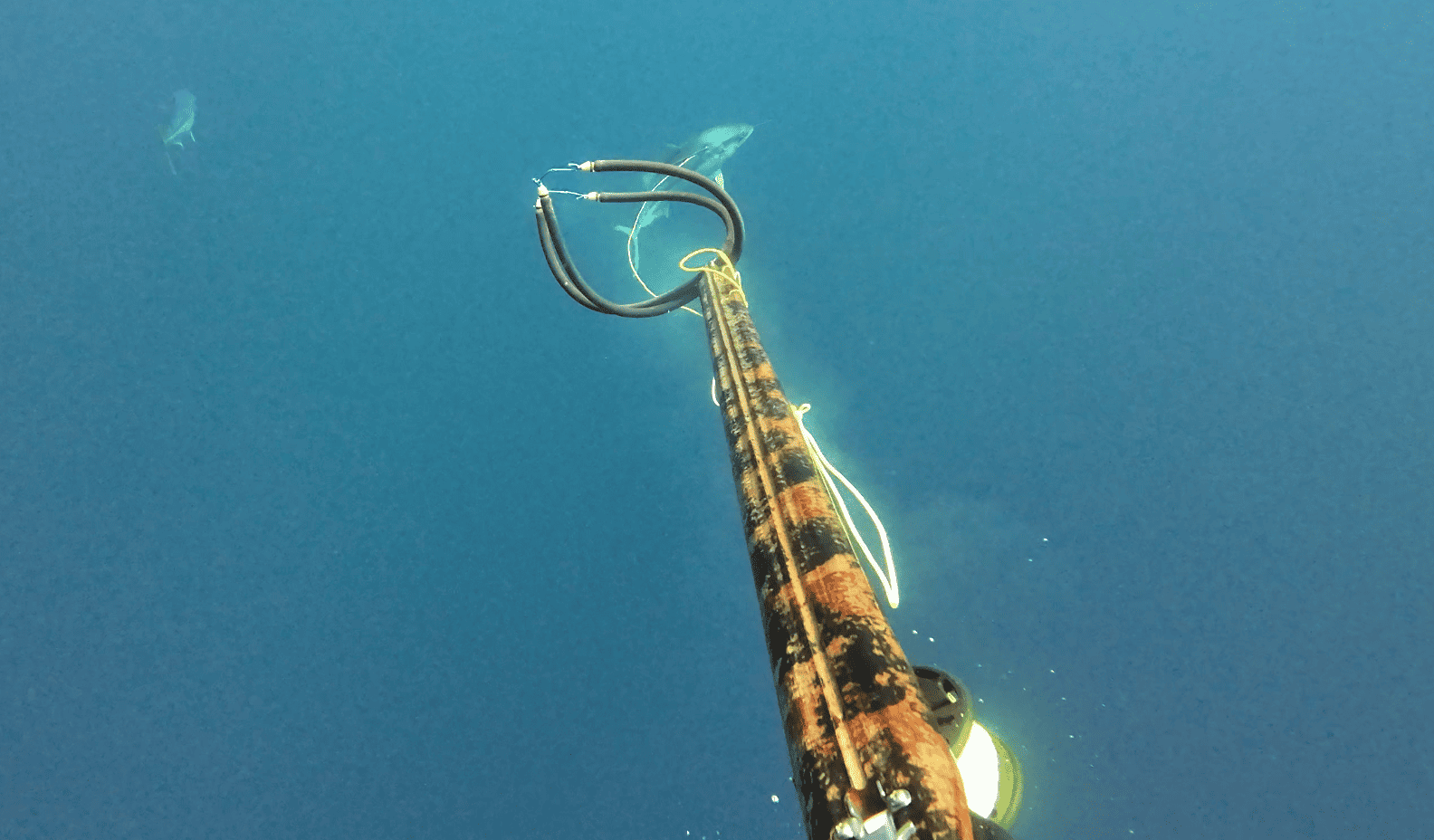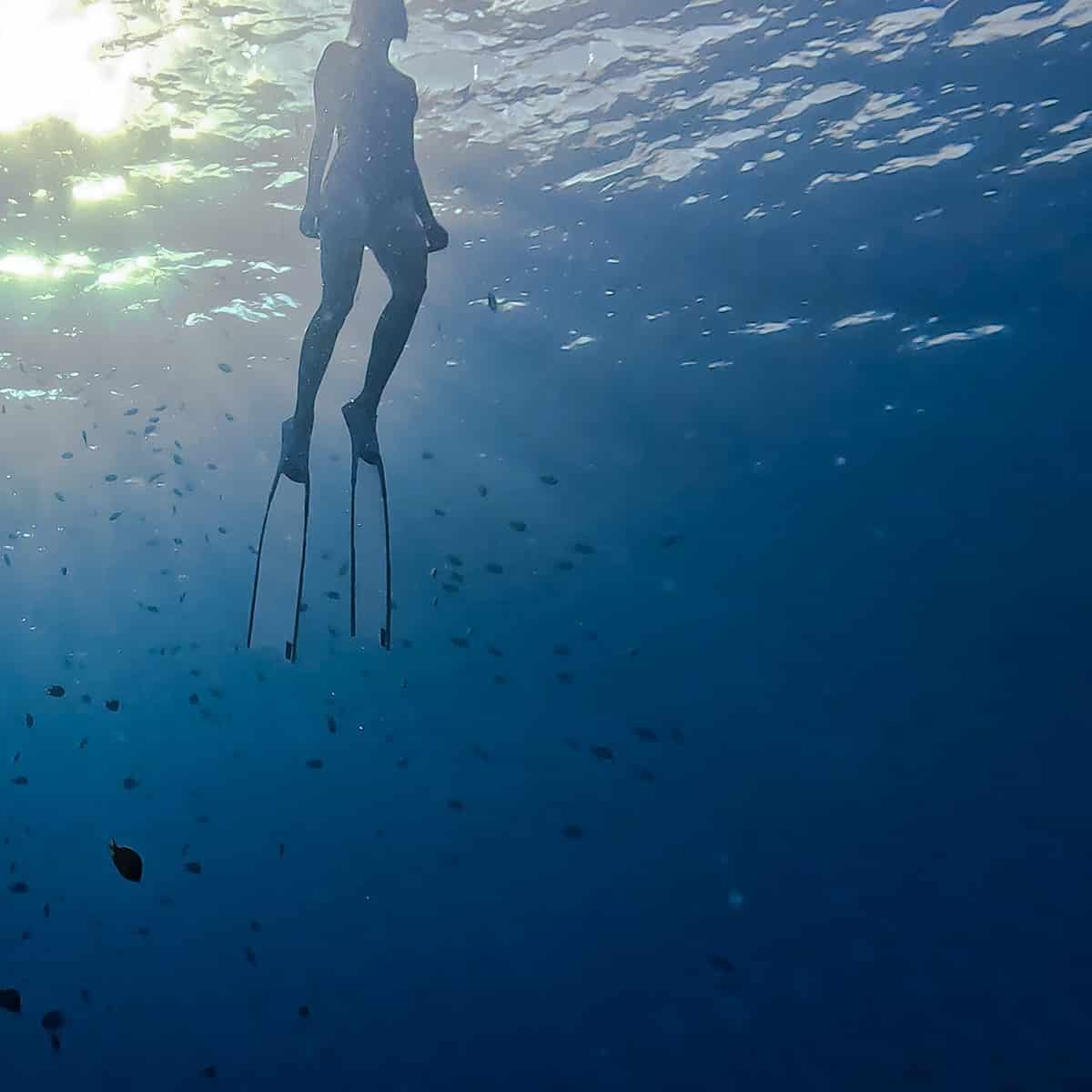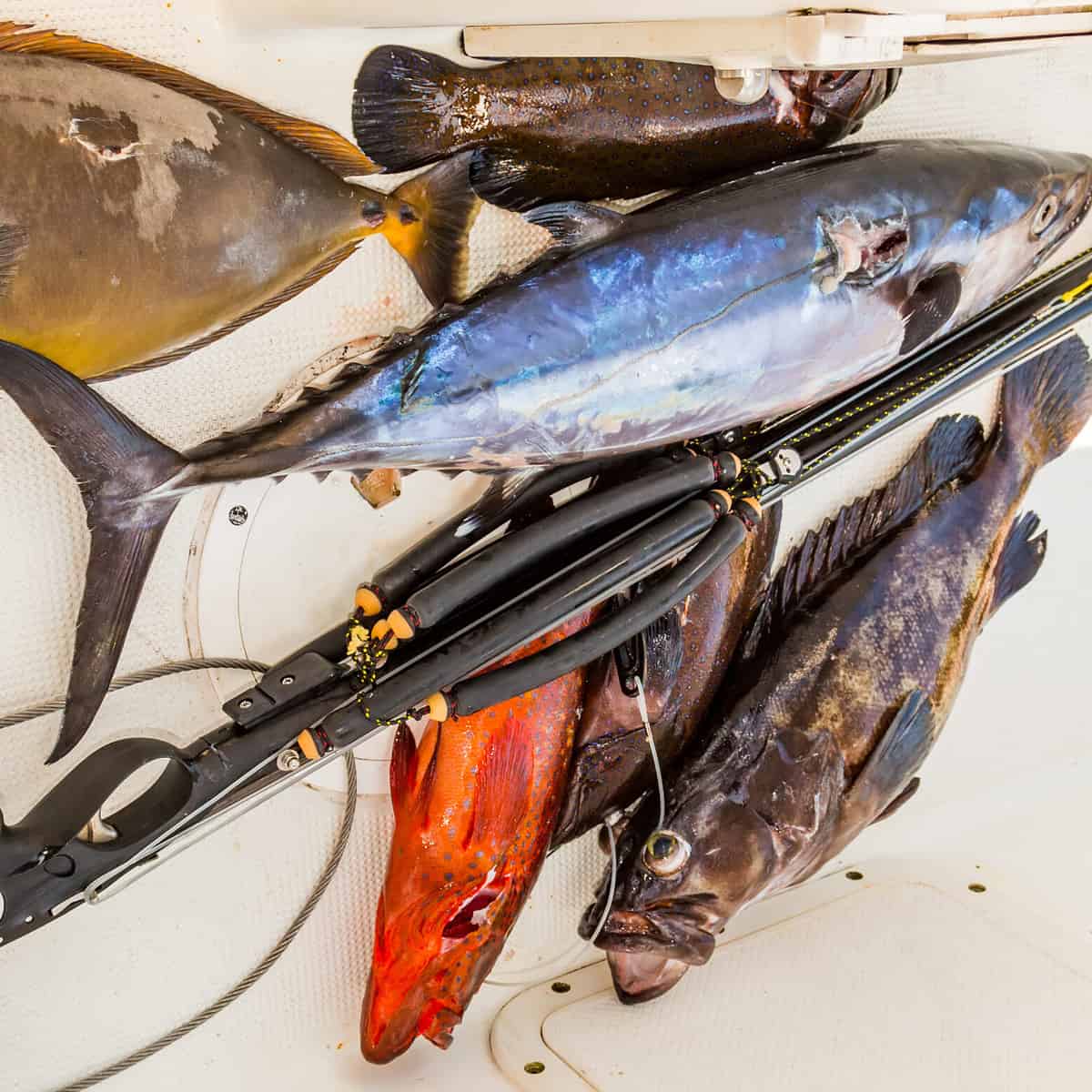Scuba diving is one of the most dangerous and rewarding hobbies out there. Diving deep down into the sea isn’t part of humanity’s evolutionary traits.
Still, thanks to advances in science and technology and the creation of scuba diving gear, it is now attainable for a human to stay underwater for almost as long as any sea life out there.
Despite having the capability to breathe and maneuver effectively under the sea, every diver should know not to go too deep. Due to immense water pressures, it is very risky for divers if they go too deep.
So then, how deep can you scuba dive?
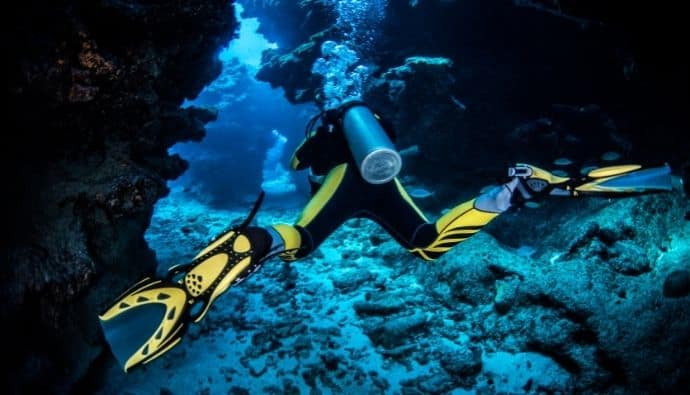
Important Things to Know Before Scuba Diving
Firstly, you must remember that entering the deep dark blues is not easy to get acclimated to; we humans evolved mainly inland and are not meant to stay underwater for long periods. The way things work in the sea is very different from land.
Let us discuss four crucial things to know when diving;
Diving Physiology
Diving physiology does not always impact the depth to which you can scuba dive. Our bodies were not designed to be submerged, yet they will not be “crushed” by the consequences of diving since water has no pressure.
Nonetheless, the hydrostatic pressure of diving versus our internal blood hydrostatic pressure affects our circulatory and renal systems, as well as our fluid balance.
Blood is generally transported to your heart and brain due to this, which is why it is critical to keep your core warm while diving.
Deep Diving Physics
How deep you may scuba dive is primarily determined by physics. Because of nitrogen (and other gases) absorption, we can only dive to specific depths during scuba diving. The pressure increases every thirty-three feet as we go underwater. The gases we breathe when diving likewise increase as pressure rises.
The gases are retained in our tissues until we ascend from the dive, at which point they have a chance to escape owing to the reduction in pressure. The exception is oxygen, which, despite being absorbed, our bodies can utilize for metabolism.
Air Consumption
How deep you may dive is also determined by your air consumption and the number of tanks you use. The faster you breathe through your air, the deeper you plunge.
As you drop, the amount of air you breathe and the density of your lungs lowers. As a result, each breath taken underwater contains more air particles than a breath taken at the surface, resulting in higher air consumption. With practice and general fitness, you’ll be able to consume more air.
Water Pressure
You also increase water pressure; your lungs will begin to compress, crushing your air intake. Your heart will have difficulty pumping; then, your blood vessels may rupture.
Deep dives impose a lot of strain on scuba divers’ bodies, and they must be physically fit and trained to conduct such drives without inflicting long-term harm to their bodies and organs.
Different Types of Diving and Their Maximum Depth
Let’s talk about recreational and technical diving. These two types of diving are very different from each other and separate extreme divers from casual divers.
Recreational diving is good for those who enjoy sightseeing underwater, while technical diving is more suited for hazardous work or deep-sea explorations.
Let’s expand on each type more;
Recreational Diving
With recreational diving, you can dive to a hundred thirty feet. For those scuba diving depths, proper certification is strongly advised. The maximum depth you may dive as a beginner open-water scuba diver is sixty feet.
Advanced open water certification will teach you to dive beyond sixty feet if you go a bit deeper. The deep diver specialty course is highly recommended if you want to dive beyond a hundred feet. Be aware that deep-diving can cause narcosis, which is similar to getting intoxicated underwater.
So if you enjoy diving underwater while avoiding life-threatening hazards, this might be for you.
Technical Diving
Now for technical diving, scuba diving takes on a whole new meaning. Technical divers often go to a depth of a hundred thirty to three hundred thirty feet, depending on the dive location and other factors that may impact the deep dive.
It includes performing exploration of deep wrecks or other structures discovered extremely deep underwater. Without formal accreditation and training from a local organization, do not try these depths.
Do note that this is very dangerous due to how deep tech divers will go. They can reach the deepest scuba dive depth.
Technical diving may be for you if you want to see how far you can dive.
Frequently asked questions
Everyone has questions, even divers. We’ve written a list of questions commonly asked by current or future divers; this will help remind you of some basic facts about diving before getting suited up for the sea.
The weight of the water and the accumulation of compressed nitrogen begins to take a toll on your body as you go deeper. Scuba divers face a significantly greater danger during deep diving.
Ahmed Gabr established the record for the deepest dive at thousand eighty-two feet in 2014. That depth is about equal to ten NBA basketball courts lined up vertically. That’s roughly four hundred eighty-five pounds per square inch in terms of pressure. At that depth, most people’s lungs would be crushed.
Final Thoughts
So how deep can you scuba dive? As a recreational diver, you might not be able to dive deeper, but you will be able to experience the ocean’s beauties and secrets.
To enhance your diving experience, dive organizations such as PADI provide certification for cave diving, shipwreck exploration, and other activities.
Commercial divers can travel considerably deeper into the water than recreational dives, but the experience is less than spectacular for them.
Divers might be physically and psychologically exhausted after spending a few days in the damp depths of the ocean.
Deep diving may appear to be more mysterious and exciting than it is!




 Facebook
Facebook YouTube
YouTube